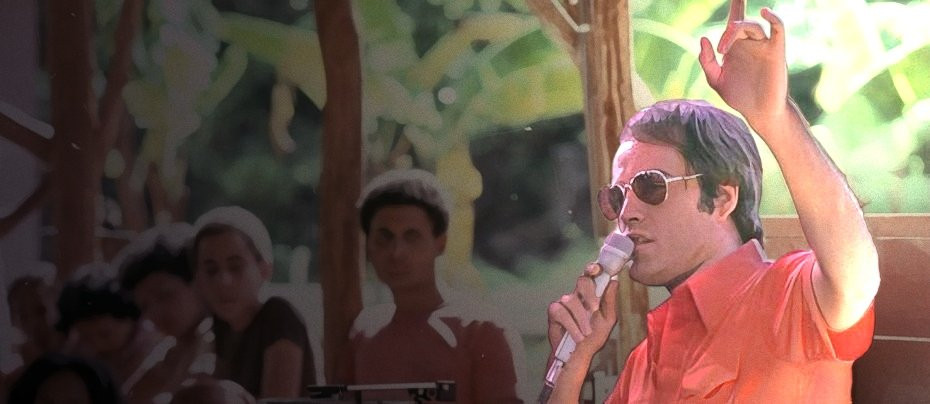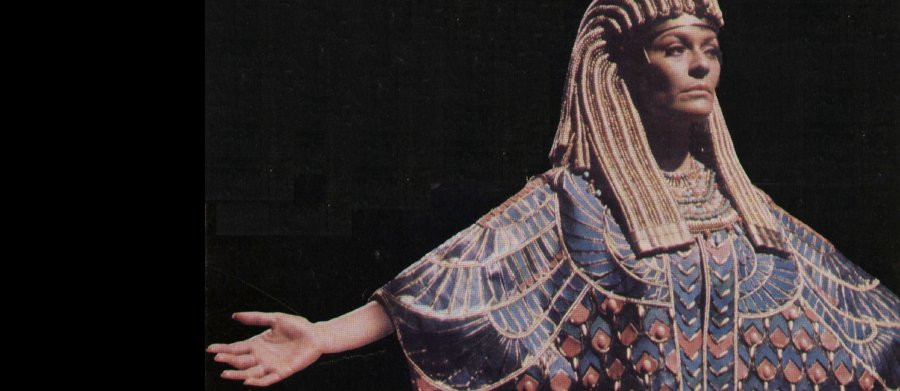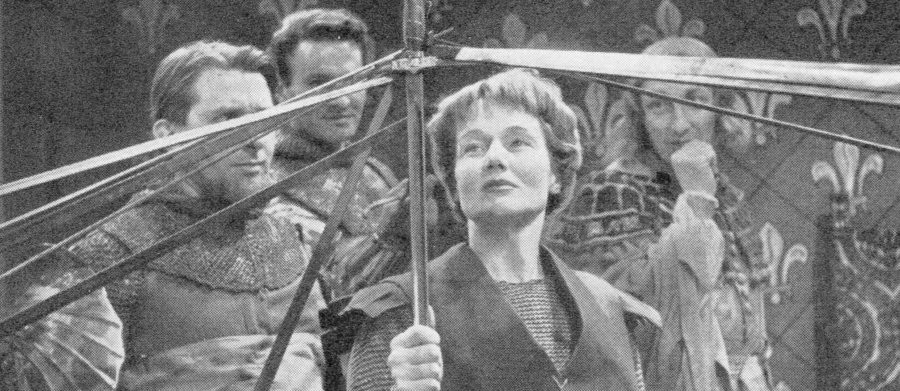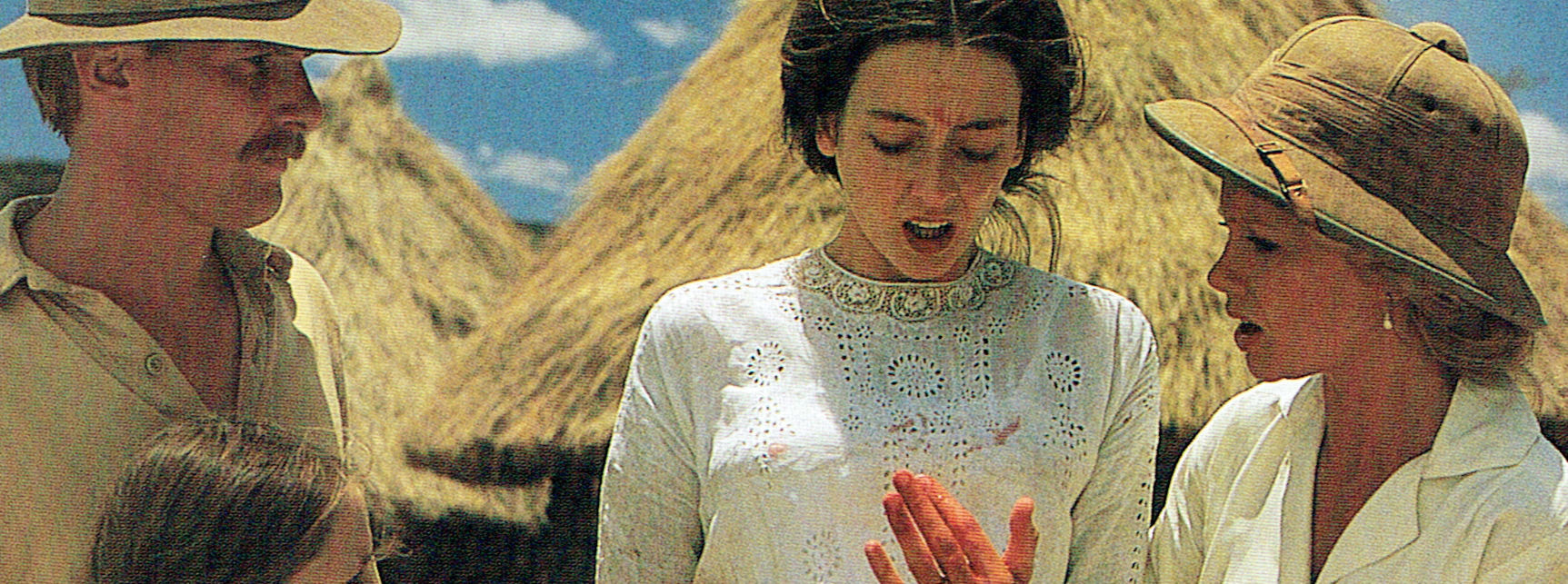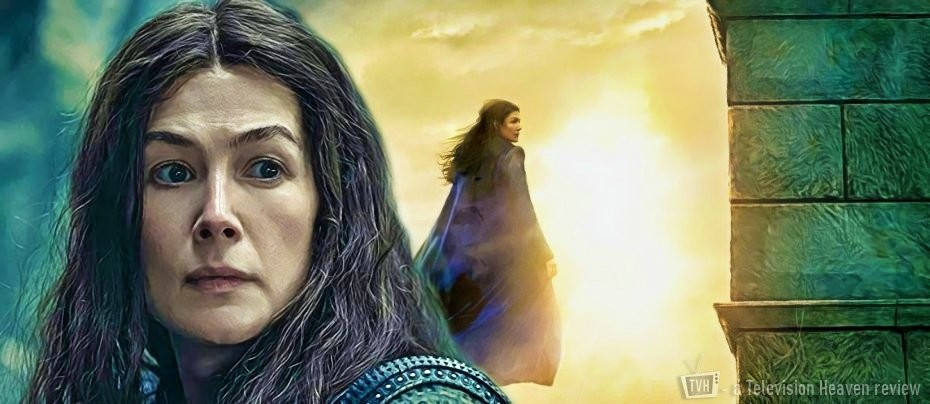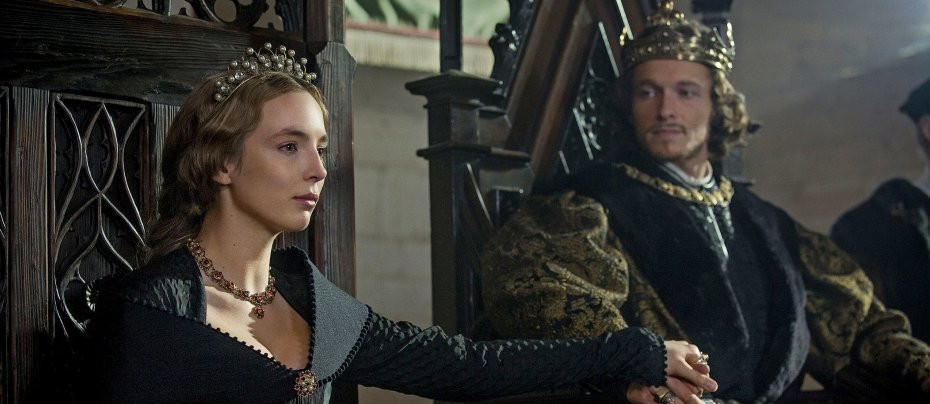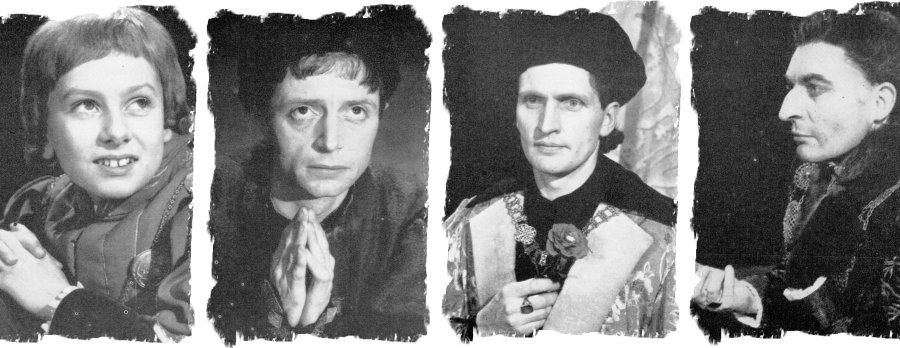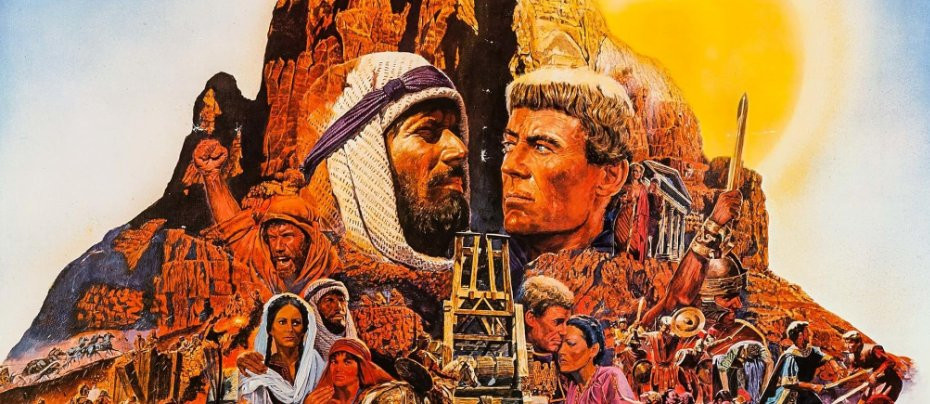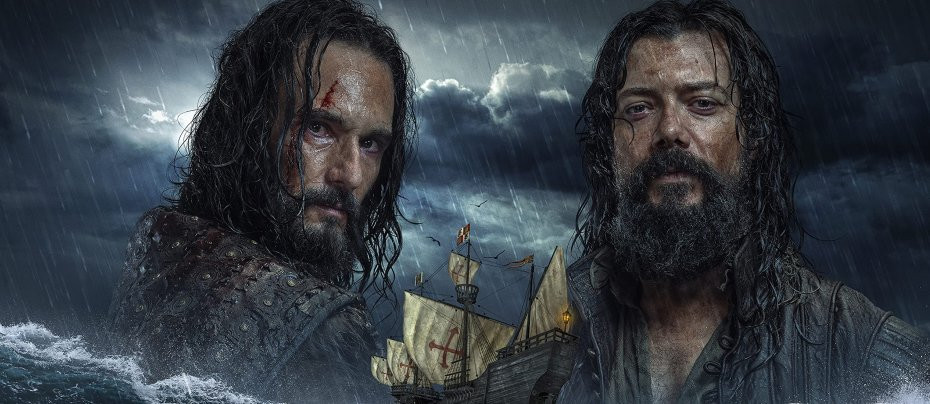
Boundless | Sin Limites
2022 - SpainReview by John Winterson Richards
Amazon's Spanish language limited drama series Sin Limites, known in English as Boundless, provides the correct answer to one of the great trick questions of history: who was the first man to sail around the world? Most British people half assume it was Sir Francis Drake, who was, of course, only the first Briton to circumnavigate the globe - the only thing that counts to most Britons. Drake was in fact beaten to it by over half a century by the first non-Briton. Most non-Britons would assume that this was the "Spanish" Ferdinand Magellan. Boundless shows why this is also wrong.
For one thing, Magellan was not Spanish. Although appointed by the Holy Roman Emperor Charles V, in his capacity as King of Spain, to command a Spanish expedition, Magellan was Portuguese. At this point the Spanish, unlike the Portuguese, did not have much of a tradition of deep Ocean sailing, concentrating their naval efforts more on galley warfare in the Mediterranean. However, following the unification of their country at the end of the 15th Century, the Spanish realised that this was something they should address since they now controlled a considerable Atlantic seaboard. They made the sensible decision to hire the best foreign expertise they could find, including the Genovese Cristoffa Corombo (aka Christopher Columbus), the Florentine Amerigo Vespucci, and Magellan, a veteran in the service of the King of Portugal who felt he had been overlooked. By the time the Portuguese accepted they had made a huge mistake, it was too late and the beginning of the end of the intercontinental maritime Empire they had been building while Spanish Monarchs were occupied elsewhere.
The Portuguese element is emphasised in Boundless, which has more than a hint of Spanish nationalism about it, portraying their next door neighbours, and competitors, as the definite villains of the piece. The Spanish are therefore the good guys, the script simply not mentioning those aspects of Spanish colonial history that might contradict this.

There is, of course, a dramatic necessity to making one's protagonists as sympathetic as possible, and there is no denying that what Magellan and his followers did was heroic by any standards. Boundless is not inaccurate in paying tribute to this, but the viewer should be aware that it is one perspective and not necessarily the whole picture. This unashamed patriotism is, however, a refreshing change from many recent Anglophone historical productions in which the bias is the other way and which descend into a self-hatred that destroys all sympathy.
The pro-Spanish bias is predictable because Boundless was actually produced by the Spanish state broadcaster, RTVE, and its release coincided with the 500th Anniversary of the Circumnavigation, rightly a matter of great national pride in Spain. The Spanish have a very strong tradition of dramatising their own history: two well produced biographies of Spaniards who had a huge influence on global culture, Cervantes and Goya, sold well internationally in the 1980s and still stick in the mind.
The star treatment given to Magellan and his companions is very much in accord with this tradition. The production values are good, even if obviously televisual rather than cinematic, especially in the sparse crowd scenes. There is, of course, great reliance on computer generated imagery (CGI), but it is generally well done and, while there is no denying that it is what it is, it does not break into enjoyment of the story. The sense of time and place feels generally convincing, even if one might take issue on some points of detail. Just ignore what looks like a telescope eighty years before Galileo.
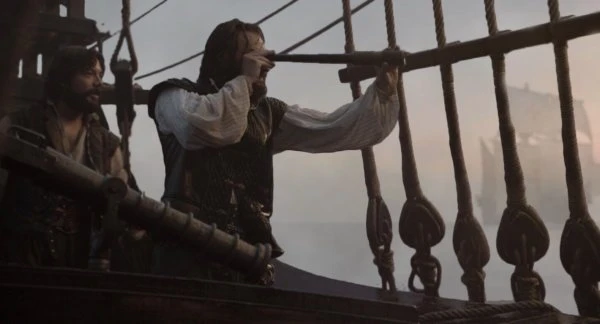
One thing Boundless conveys very powerfully is just how small even deep Ocean sailing ships were in the early 16th Century (your reviewer was shocked several years ago on boarding a full scale replica of Drake's Golden Hind and seeing how tiny it was, especially compared with the likes of HMS Victory). However, the production design then rather pulls its punches a bit by failing to illustrate the full horror of the overcrowding and the squalor of a long voyage on such ships. There would, for example, have been no room for the Ship's Historian to sit alone at night as he wrote by candlelight. Indeed, candles were then in any case a luxury and their unnecessary use was generally discouraged on highly flammable wooden vessels.
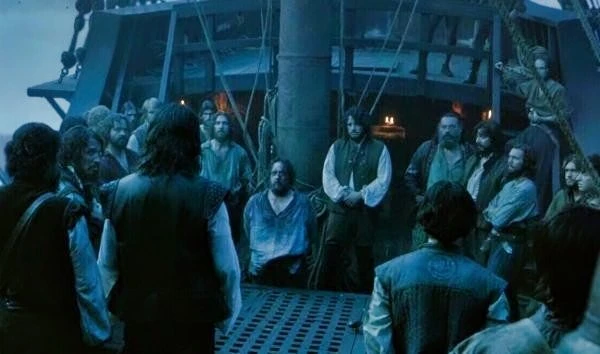
Perhaps it is always necessary to romanticise a little in historical drama in order to make it accessible. The full horror of living in olden times might be too distracting for viewers.
It is also permissible that little liberties are taken with the script. For example, there is an exchange of anachronistically effective cannon between Magellan's small squadron and a Portuguese fleet. This never happened. While the Portuguese sent ships out to intercept Magellan, he changed course to avoid them, which is obviously not as exciting as a battle.
Another permissible liberty is having the two main characters, Magellan and the Basque Pilot Juan Sebastian Elcano, serving on the same ship, so that they are shown as having a closer and dramatically more interesting relationship than they probably did. In fact, Elcano sailed out on a different ship and was a fairly insignificant member of the expedition, not even its Chief Pilot, until a frightening mortality rate among captains led to rapid promotion.

Less excusable is how the production fails to keep track of the vessels of the squadron. One or two seem to be missing for long periods, which is the sort of thing that happened on such expeditions as ships were sent out to scout or were driven apart by storms, but no one ever explains what is happening, so it gets a bit confusing. In spite of it having the potential for a very exciting sequence, it is not even mentioned that one vessel was wrecked, with most of the crew saved almost miraculously, or that one reported missing actually returned early to Spain, where self justifying stories spread by its crew caused a lot of problems.
One gets the impression that the original script might have been much longer but the version shown on Amazon was cut, either before or after filming, to reduce it to six tight episodes (this sentence was written before discovering that there is indeed a Director's Cut only for cinema).
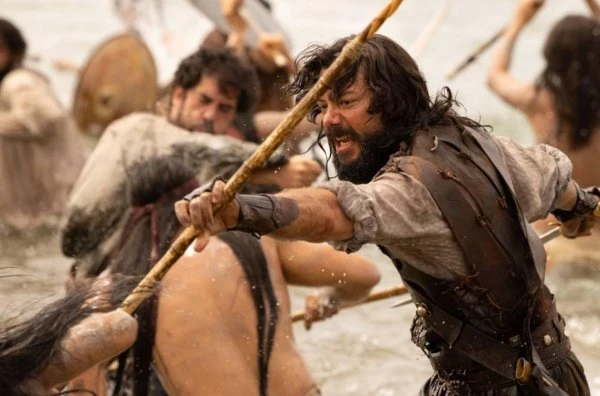
This would certainly explain the brusque treatment of one of the big action sequences, the St Julian's Mutiny. It is not altogether clear what is happening and how Magellan is able to turn the tables so completely when it seems almost everyone was against him. What really happened is honestly far more exciting than what we see, or do not see, here. It does not help that the highly accomplished British director Simon West (Con Air) seems to have developed an aversion to light on this project: too many scenes are set at night or have a dark tone which is odd for an adventure set in the sunny South Seas.
The other big action scene, Magellan's ill-advised intervention in local politics in the Philippines, is handled much better, even if a television budget fails to convey how badly the Spanish were outnumbered. The explanation for what seemed like a massive act of treachery is based on a contemporary source and is presented credibly, so that we can see that all the different points of view must have seemed reasonable at the time to the different people involved.
In general, Boundless is much better history than most recent historical drama, even if that is hardly a great compliment. Most of the events depicted really did occur - if not necessarily exactly as depicted. As usual with adaptations, there are necessary omissions, including some incidents and characters which one might have thought had great dramatic potential, but the hardest part of any writer's job is always deciding what to leave out.
It is also to the writers' credit that they just told the story and did not feel obliged to insert currently fashionable political opinions about the past in order to imply their personal moral superiority over their own ancestors as Anglophone writers tend to do these days.
The production is lifted by two strong leading performances. As Magellan, Brazilian star Rodrigo Santoro projects that ineffable natural command presence that enables a man to get others to do as he says, while at the same time trying, and often failing, to hide the flaws and fears that are not far below the surface. His performance is a credible portrait of leadership, good and bad. Magellan is a man with firm faith in God, his mission, and himself, but, understandably, not in his crew: he is distrusted so he cannot trust. He is a classic tragic hero, undone by a combination of his own justified self confidence and equally justified paranoia.
Elcano, played sympathetically by Alavaro Morte (Money Heist, The Wheel of Time) comes across as more of a man on the make, as he does in history, but who nevertheless rises to the occasion in the final episodes as he struggles to lead a dwindling band of sick, emaciated survivors back to Spain. The last episode provides some of the most powerful scenes.
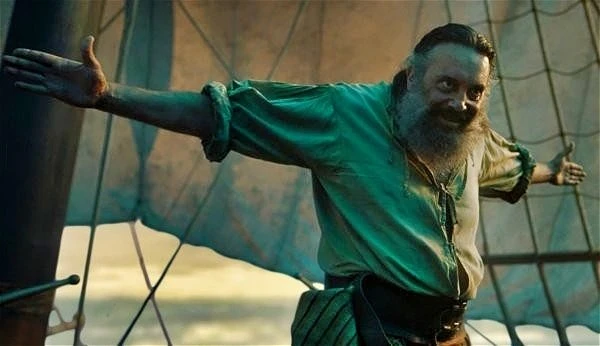
The final irony is that Magellan still gets the glory for what he never intended. His original plan was not to circumnavigate the globe at all but to find a route to the South of the American continent leading to the Spice Islands of Indonesia, which he did, and return the same way, which he did not. He seems to have underestimated both the length of the Americas and the breadth of the landless Pacific. It was Elcano who decided to return by circumnavigation. The extent to which he did this to make a name for himself or because he had little choice, given the losses the expedition had suffered on the way, may be a matter for debate. The evidence we have suggests that both were factors in his decision. Either way, both Magellan and Elcano deserve to be celebrated as heroes, and Boundless tells their story well.
Seen this show? How do you rate it?
Seen this show? How do you rate it?
Published on January 2nd, 2024. Written by John Winterson Richards for Television Heaven.



